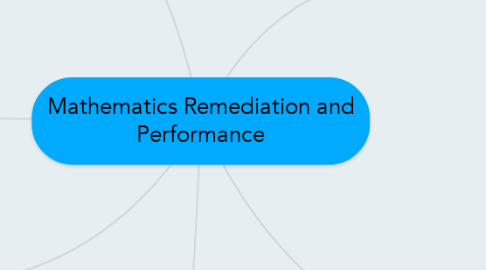
1. The Problem
1.1. Failure and Retention
1.2. Gateway Mathematics Courses
2. Literature
2.1. Current status of the literature states that 60% fail remediation courses.
2.2. 1 in 4 that complete a remediation course sequence actually pass their gateway course to pursue their degree
2.3. Lab course designs add extra time on task
2.4. Lots of research performed in common sciences that show a lift in achieved learning objectives
3. What to explore?
3.1. How should multimedia be desiged
3.2. Collaborative Learning inside and outside the classroom
3.3. How will the students react to having less lecture and more active learning?
4. Theories for Teaching and Learning
4.1. Active learning theories
4.2. Constructivist Learning Theory
4.3. Dewian thought... "What do you want to learn today?"
4.4. Hybrid Course Design
5. Different Designs to Consider
5.1. Lab Classes used to enhance learning
5.1.1. Many sciences use this model (Biology, Chemistry, Physics)
5.1.2. Allows additional time outside of class to reinforce
5.1.3. Active learning / Engaging
5.2. Full remediation pre-requisite Courses
5.2.1. Cost more to students in time and money
5.2.2. Many fail, and those that pass only one out of four get a degree
5.2.3. Commonly delivered lecture style
5.3. Corequisite Models
5.3.1. Could model the lab class design
5.3.2. Pilot test returned a high proportion of success over pre-requisite courses
6. Methodology
6.1. Quantitative
6.1.1. Will corequisite course designs improve student performance?
6.1.2. Will student success improve in their next mathematics course?
6.1.3. Will student retention improve (2 year retention)?
6.2. Qualitative
6.2.1. Will students perceptions of conceptual learning improve? (do they believe they learned something?)
6.3. Quasi Flipped Classroom
6.3.1. Students will have extra online resources and video lectures
6.3.2. Online problem banks used to create work with feedback
6.3.3. Instructor + 2 graduate assistants to "tutor" and "teach" mini lessons
